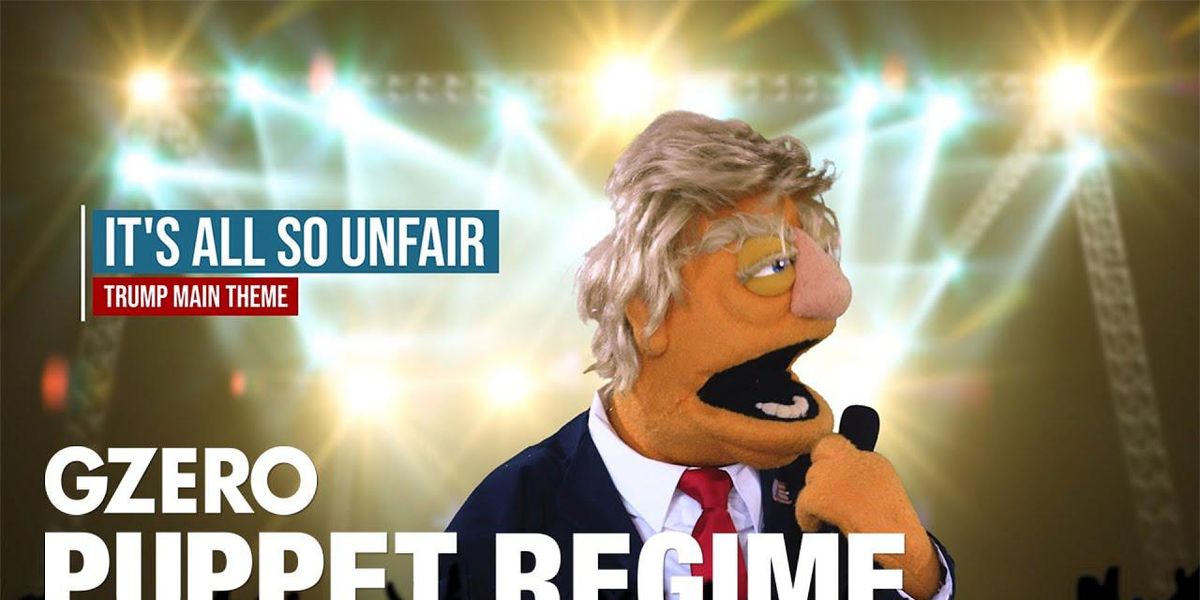Trending Now
We have updated our Privacy Policy and Terms of Use for Eurasia Group and its affiliates, including GZERO Media, to clarify the types of data we collect, how we collect it, how we use data and with whom we share data. By using our website you consent to our Terms and Conditions and Privacy Policy, including the transfer of your personal data to the United States from your country of residence, and our use of cookies described in our Cookie Policy.
{{ subpage.title }}
Argentina's President Javier Milei wants his nation "on the side of liberal democracies"
In the latest episode of GZERO World, Ian Bremmer sits down with the new firebrand president of Argentina, Javier Milei. Milei may be best known outside of Argentina for his flair for the dramatic, whether it be cloning his dogs, calling the pope an SOB, or dressing up as a superhero to sing about fiscal policy.
But when it comes to trade and geopolitics, don’t let the fanfare fool you. Milei is clear-eyed. He plans to reverse “100 years of decadence” — which he blames on Argentina’s various leftist governments of the past — by forging an open and free trade policy.
“Trade is a prosperity machine, and we should seek every possible way to open up more markets and to open up more vis-a-vis the rest of the world,” he says.
But what might be even more striking for the flamboyant leader is his sober geopolitical outlook and his determination to keep Argentina on the side of Western democracies.
“The key point here is not just about the benefits to be gained from free trade,” Milei tells Bremmer, “but it's also a significant geopolitical matter about making sure we are on the right side of history, which is the side of liberal democracies, and not on the side of autocrats.”
Milei also cautions other nations to learn from Argentina’s missteps. “I recommend to everyone NOT to follow in Argentina's footsteps,” Milei asserts, highlighting Argentina’s drastic fall from wealth due to socialist policies. His message is clear: Argentina’s experience is a cautionary tale, underscoring the perils of forsaking economic freedom and democratic principles.
Watch the full interview on GZERO World with Ian Bremmer, the award-winning weekly global affairs series, airing nationwide on US public television stations (check local listings).
New digital episodes of GZERO World are released every Monday on YouTube and on our website. Don’t miss an episode: subscribe to GZERO's YouTube channel and turn on notifications (🔔).
- Milei makes fiery Davos debut ›
- The masses test Milei with major protest ›
- How Javier Milei is turning Argentina's economy around ›
- Is Milei moderating? Argentina’s president-elect takes power ›
- Who the heck is Javier Milei? ›
- Ian Explains: What's so radical about Argentina's new president (besides his cloned dogs)? - GZERO Media ›
- Argentina's radical new president, Javier Milei (Exclusive interview) - GZERO Media ›
- Javier Milei's plan to save Argentina: Full interview - GZERO Media ›
Colombian President Gustavo Petro gestures after casting his vote during the elections for governors, regional lawmakers and mayors, in Bogota, Colombia October 29, 2023
Has Petro petered out?
President Gustavo Petro saw his allies lose elections across Colombia’s largest cities this weekend in what is widely viewed as a rebuke to the government and its reform agenda.
Petro, Colombia’s first left-wing leader, promised transformational change, but he has struggled to deliver. His frustration is tangible: When centrist Cabinet ministers opposed a controversial health care reform in April, the impasse broke apart his coalition, and Petro fired a third of his Cabinet, appointing ideological allies instead. He attempted to govern by emergency decree in La Guajira department, only to be stymied by the constitutional court, while his congressional priorities have slowed to a crawl. To make matters worse, his administration has been embroiled in separate corruption and wiretapping scandals.
Voters haven’t had it any easier. Colombia’s economy grew by 7.3% in 2022 but is expected to grow by just 1.7% in 2023, straining families in one of the world’s most unequal economies.
The weekend’s contests saw no widespread violence or irregularities, but voters are clearly displeased. The candidate Petro endorsed for mayor of the capital, Bogotá, often considered the country’s second most prominent political office, came in third, and Medellín and Cali elected some of Petro’s fiercest critics.
Petro himself can’t run for office again in 2026, and Eurasia Group’s Colombia expert Maria-Luisa Puig says the results portend ill for his chances of positioning a candidate to carry on his political legacy — but he’s not quite a lame duck.
“Despite the defeat at the local level,” she notes, “Petro can still secure enough votes in congress to advance aspects of his reform agenda,” which may allow for watered-down versions of his pension and health care programs to pass.
Trump’s comeback tour
Donald Trump may have lost the 2020 election, but his greatest hits still draw a big crowd.
Watch more PUPPET REGIME!
Subscribe to GZERO Media's YouTube channel to get notifications when new videos are published.
- 2021: THE YEAR IN PUPPET REGIME - GZERO Media ›
- Trump's 2024 outlook: impact of Jan. 6 hearings ›
- Trump's 2024 outlook: more vulnerable after Jan 6 hearings - GZERO Media ›
- Totally eclipsed by Trump | PUPPET REGIME - GZERO Media ›
- Trump's moonshot to end the Ukraine war - GZERO Media ›
- Trump & Elon's grand plan to liberate you EVEN MORE - GZERO Media ›

